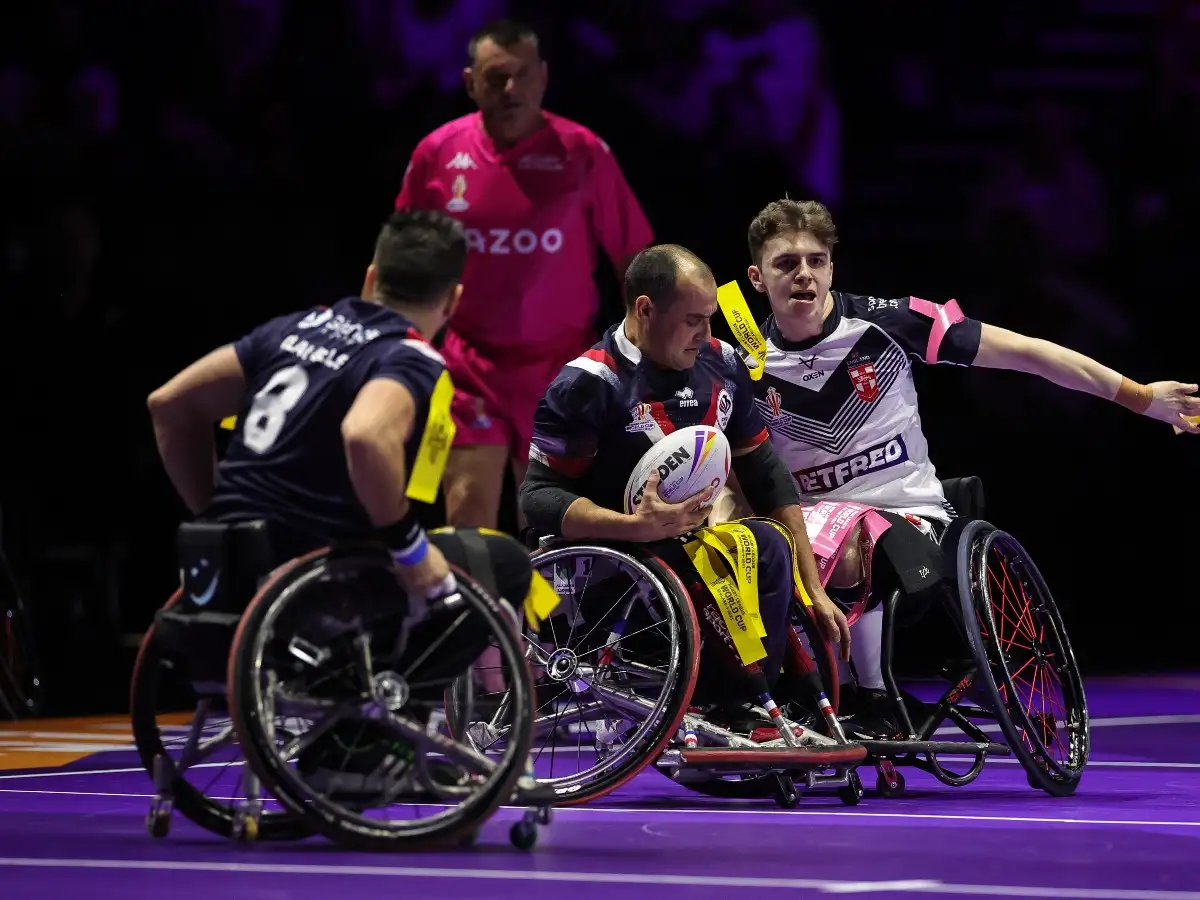Controversial referee stood down pending investigation

International Rugby League has launched an investigation into the behaviour and actions of match official Laurent Abrial during the Wheelchair World Cup final.
Abrial’s antics on the touchline were captured on the live BBC coverage of the final at Manchester Central, which England won 28-24 against France.
What is going on here?! 😳
One of the officials disagrees with the referee's decision and starts kicking off about it 😡😬#BBCRL #RLWC2021 pic.twitter.com/HXTrPtUmja
— BBC Sport (@BBCSport) November 18, 2022
He appeared to vent his frustration at a decision made by the lead referee and was seen on two separate occasions making gestures while waiting for conversions to be taken.
Another video went viral showing a confrontation between Abrial and World Cup tournament director Dean Hardman after the final whistle. He also appeared to gesture towards supporters, who widely booed him during the officials’ presentation.
Quite astonishing footage of the controversial French Wheelchair World Cup Final official Laurent Abrial after the match had finished. pic.twitter.com/LAbDwogMuy
— Matthew Shaw (@M_Shaw1) November 19, 2022
His actions have led to widespread condemnation on social media.
IRL Secretary General Danny Kazandjian said: “The referee’s performance is currently being reviewed but, based on publicly available evidence, IRL believes that an investigation into potential misconduct is warranted.
“If our investigation supports that initial view we will seek disciplinary actions through the independent IRL judiciary.
“Until the full process is concluded Laurent Abrial will not be considered for any appointments to international matches.”
It wasn’t the only controversy that overshadowed England’s momentus victory.
France head coach Sylvain Crismanovich used both his pre-match and post-match press conferences to voice his displeasure at the nature of the sport, criticising the impact of able-bodied players.
He said that it had caused the game to become more violent and increase the impact, which may put off disabled people from participating.
Teams are allowed two able-bodied players on the court at any one time.